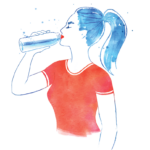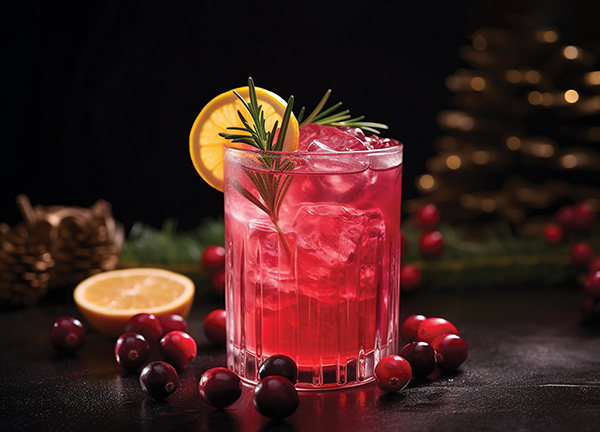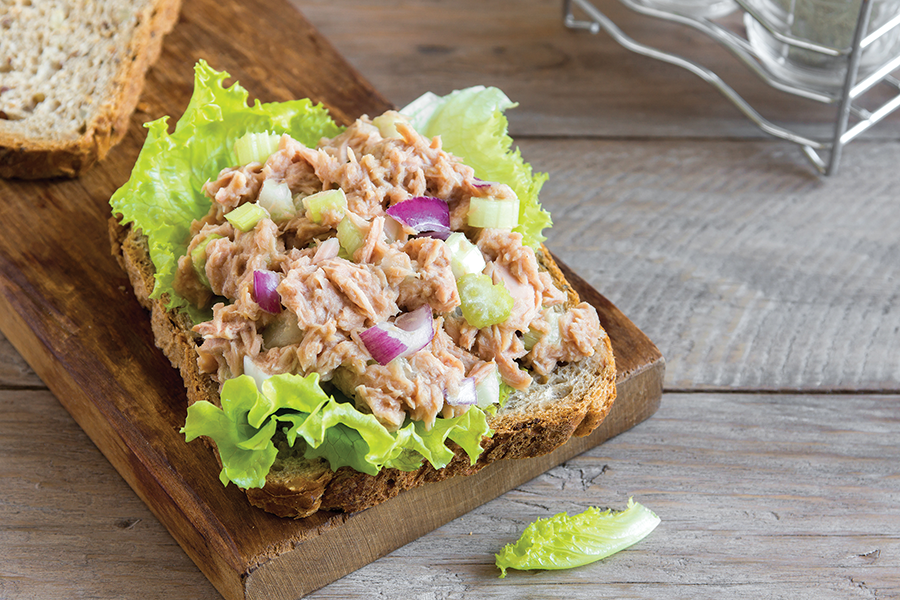 Sports drinks are popular among athletes and non-athletes alike, touted for their hydrating and energizing properties. Are they more beneficial than plain water?
Sports drinks are popular among athletes and non-athletes alike, touted for their hydrating and energizing properties. Are they more beneficial than plain water?
How they work
Sports drinks provide carbohydrates; electrolytes, which are lost through sweating (e.g., sodium, chloride, and potassium); and sometimes other nutrients, such as riboflavin, niacin, vitamins B6 and B12, phosphorus, and taurine. Studies show that carbohydrate compensation is most effective in improving athletic performance due to its ability to slow the depletion of muscle glycogen, thus preventing or slowing fatigue.1 Consuming electrolytes helps promote rehydration.2 However, these benefits only apply when you are engaged in moderate-to-intense exercise for longer than one hour.1,3,4 For most people, sports drinks are not necessary; water is sufficient for staying hydrated, and it does not contain sugar.
Glucose and sucrose are the sugars most commonly found in sports drinks. While these sugars are a necessary part of healthy diets and help maintain glycogen stores, consuming too much can increase the risk of adverse health effects, such as overweight/obesity, Type 2 diabetes, and dental cavities.5 People who need to monitor their sugar and/or carbohydrate intake should always check nutrition labels, and, when in doubt, consult with their physicians before consuming energy drinks.
Sports drinks and children
Although sports drinks have been shown to be effective in enhancing athletic performance in adults, little research has been done concerning children and sports drink consumption. Sports drinks may benefit those engaging in intense physical activity, but water is recommended as the first choice of hydration for most children.4
Brand comparison
Although many different brands of sports drinks exist, their compositions do not vary widely. In general, most sports drinks contain 6 to 8 percent carbohydrates.3 Their electrolyte content tends to be similar as well; for example, Gatorade contains 20mmol/L of sodium and 3mmol/L of potassium and Powerade contains 23mmol/L of sodium and 2mmol/L of potassium.2 As such, they are about equally effective in providing energy and staving off fatigue.
Bottom line
While useful in certain circumstances, such as when engaging in extended, moderate-to-intense physical activity or to replenish lost fluids and electrolytes due to illness, sports drinks are not beneficial to the majority of the population. For many people, including children and those who must moderate sugar intake, water is the best drink for hydration. When it is appropriate to have a sports drink, most mainstream varieties offer similar levels of carbohydrates and electrolytes, so your choice should come down to personal preference.
Sources
1. Orrù S, Imperlini E, Nigro E, et al. Role of functional beverages on sport performance and recovery. Nutrients. 2018;10(10):1470.
2. Shirreffs SM. Hydration in sport and exercise: water, sports drinks and other drinks. Nutr Bull. 2009;34:374–379.
3. Grant T. Should you drink sports drinks instead of water? 13 May 2018. Healthline website. https://www.healthline.com/nutrition/sports-drinks#athletes. Accessed 26 Jul 2021.
4. Pound CM, Blair B. Energy and sports drinks in children and adolescents. Paediatr Child Health. 2017;22(7):406–410.
5. Harvard School of Public Health website. https://www.hsph.harvard.edu/nutritionsource/sports-drinks/. Accessed 26 Jul 2021.





